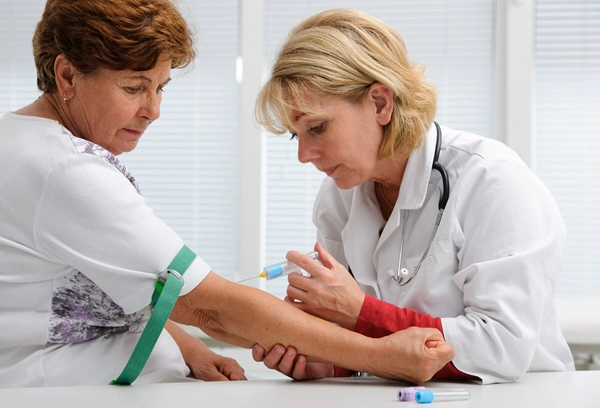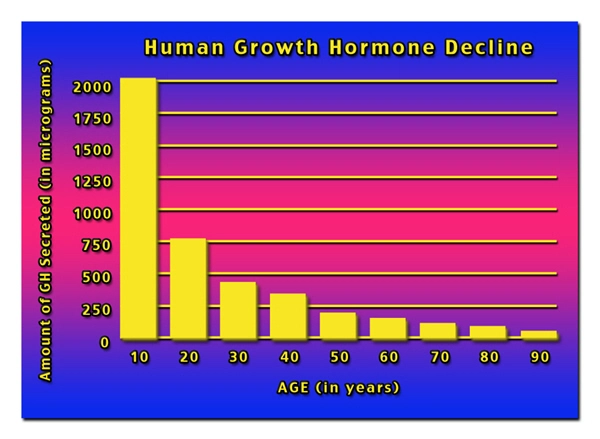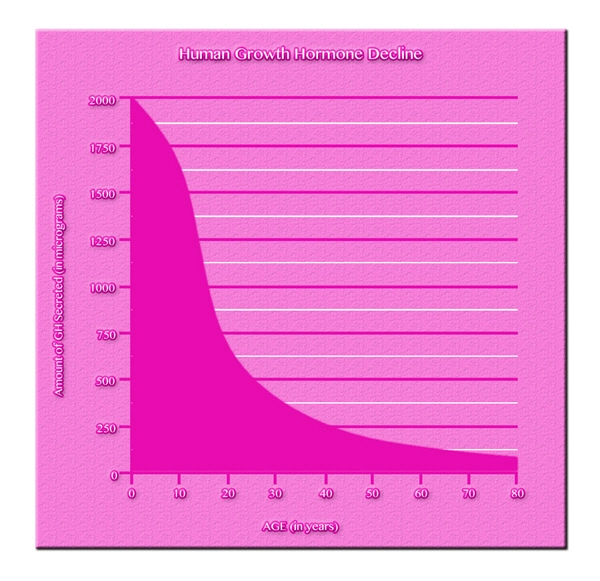Understanding Depression in Men
Depression is a pervasive mental health condition that affects millions of American men, often manifesting differently than in women. While societal norms may discourage men from openly discussing their mental health, it is crucial to recognize the signs and seek appropriate treatment. Depression in men can lead to significant distress and impairment in daily functioning, making it essential to address this issue head-on.
Common Symptoms of Depression in Men
Men experiencing depression may exhibit symptoms such as persistent sadness, loss of interest in previously enjoyed activities, changes in appetite or weight, sleep disturbances, fatigue, difficulty concentrating, and feelings of worthlessness or guilt. Additionally, men may be more likely to express their depression through irritability, anger, or increased risk-taking behaviors, which can sometimes mask the underlying condition.
The Importance of Seeking Treatment
Seeking treatment for depression is a vital step towards improving mental well-being and overall quality of life. Many men may hesitate to seek help due to stigma or a belief that they should be able to handle their problems independently. However, depression is a legitimate medical condition that requires professional intervention, just like any other health issue.
Effective Treatment Options for Men
Several evidence-based treatment options are available for men struggling with depression. The most appropriate approach may vary depending on individual needs and preferences, but the following options have proven effective:
1. Psychotherapy
Psychotherapy, or talk therapy, is a cornerstone of depression treatment. Cognitive-behavioral therapy (CBT) and interpersonal therapy (IPT) are two well-established approaches that can help men identify and change negative thought patterns, develop coping strategies, and improve relationships. Engaging in therapy can provide a safe space for men to explore their emotions and work towards lasting change.
2. Medication
Antidepressant medications, such as selective serotonin reuptake inhibitors (SSRIs) and serotonin-norepinephrine reuptake inhibitors (SNRIs), can be effective in managing depression symptoms. These medications work by balancing neurotransmitters in the brain, helping to improve mood and overall well-being. It is essential to work closely with a healthcare provider to find the right medication and dosage, as individual responses may vary.
3. Lifestyle Modifications
Incorporating healthy lifestyle changes can complement other treatment approaches and support mental well-being. Regular exercise has been shown to have a positive impact on mood and can help alleviate symptoms of depression. Additionally, maintaining a balanced diet, getting adequate sleep, and reducing alcohol and substance use can contribute to overall mental health.
4. Support Groups and Peer Support
Connecting with others who have experienced similar challenges can be invaluable for men dealing with depression. Support groups and peer support networks provide a sense of community, understanding, and encouragement. Sharing experiences and coping strategies with others can help men feel less isolated and more empowered in their journey towards recovery.
5. Alternative and Complementary Therapies
Some men may find benefit in exploring alternative and complementary therapies, such as mindfulness meditation, yoga, or acupuncture. While these approaches should not replace evidence-based treatments, they can serve as valuable adjuncts to support overall well-being and stress management.
The Role of Primary Care Providers
Primary care providers play a crucial role in identifying and addressing depression in men. Regular check-ups provide an opportunity for healthcare professionals to screen for depression and initiate conversations about mental health. By fostering open and non-judgmental discussions, primary care providers can help men feel more comfortable seeking the support they need.
Conclusion
Depression is a treatable condition, and American men have access to a range of effective treatment options. By recognizing the signs of depression, seeking professional help, and engaging in evidence-based treatments, men can take proactive steps towards improving their mental well-being. It is essential to challenge the stigma surrounding men's mental health and encourage open dialogue, support, and access to care. With the right approach and support system, men can overcome depression and lead fulfilling, healthy lives.

- Understanding and Treating Erectile Dysfunction: A Comprehensive Guide for American Men [Last Updated On: March 2nd, 2025] [Originally Added On: March 2nd, 2025]
- Optimizing Men's Health: Strategic Use of Supplements for American Males [Last Updated On: March 17th, 2025] [Originally Added On: March 17th, 2025]
- Top Modern Fitness Trends Transforming Men's Health in America [Last Updated On: March 18th, 2025] [Originally Added On: March 18th, 2025]
- Meditation's Impact on Men's Mental Health: Stress Relief, Resilience, and Well-being [Last Updated On: March 18th, 2025] [Originally Added On: March 18th, 2025]
- Osteoporosis in Men: Prevention and Management Strategies for Bone Health [Last Updated On: March 18th, 2025] [Originally Added On: March 18th, 2025]
- Stress and Heart Health: Impacts and Management Strategies for American Men [Last Updated On: March 18th, 2025] [Originally Added On: March 18th, 2025]
- Addressing Mental Health Stigma in American Men: Challenges and Strategies for Change [Last Updated On: March 19th, 2025] [Originally Added On: March 19th, 2025]
- Physical Activity's Role in Cancer Prevention for American Men: Strategies and Benefits [Last Updated On: March 19th, 2025] [Originally Added On: March 19th, 2025]
- Hydration's Vital Role in Men's Health: Benefits and Practical Tips [Last Updated On: March 19th, 2025] [Originally Added On: March 19th, 2025]
- Gut Health's Role in American Males' Wellness: Microbiome, Mental, and Cardiovascular Health [Last Updated On: March 20th, 2025] [Originally Added On: March 20th, 2025]
- Managing Allergies in American Men: Triggers, Strategies, and Workplace Solutions [Last Updated On: March 21st, 2025] [Originally Added On: March 21st, 2025]
- Gout in American Men: Causes, Symptoms, and Management Strategies [Last Updated On: March 21st, 2025] [Originally Added On: March 21st, 2025]
- Work-Life Balance Impact on American Men's Health: Strategies for Improvement [Last Updated On: March 21st, 2025] [Originally Added On: March 21st, 2025]
- Sleep Apnea in American Men: Symptoms, Risks, and Management Strategies [Last Updated On: March 21st, 2025] [Originally Added On: March 21st, 2025]
- Understanding and Overcoming Male Infertility: Causes, Diagnosis, and Treatment Options [Last Updated On: March 21st, 2025] [Originally Added On: March 21st, 2025]
- Mental Health Days: Essential for American Men's Well-being and Productivity [Last Updated On: March 22nd, 2025] [Originally Added On: March 22nd, 2025]
- Asthma in Men: Understanding Risks, Symptoms, and Tailored Management Strategies [Last Updated On: March 22nd, 2025] [Originally Added On: March 22nd, 2025]
- Dental Health's Crucial Role in Men's Overall Wellness and Life Quality [Last Updated On: March 22nd, 2025] [Originally Added On: March 22nd, 2025]
- Alcohol's Impact on Liver Health in American Males: Prevention and Management Strategies [Last Updated On: March 23rd, 2025] [Originally Added On: March 23rd, 2025]
- Dietary Strategies for Enhancing Prostate Health in American Men [Last Updated On: March 23rd, 2025] [Originally Added On: March 23rd, 2025]
- High Cholesterol in American Men: Risks, Management, and Prevention Strategies [Last Updated On: March 23rd, 2025] [Originally Added On: March 23rd, 2025]
- Swimming: Enhancing Men's Health from Heart to Mind [Last Updated On: March 23rd, 2025] [Originally Added On: March 23rd, 2025]
- Caffeine's Impact on American Men's Health: Benefits and Risks [Last Updated On: March 24th, 2025] [Originally Added On: March 24th, 2025]
- Strength Training: Enhancing Health, Mental Well-being, and Longevity for American Men [Last Updated On: March 24th, 2025] [Originally Added On: March 24th, 2025]
- Exercise Benefits and Strategies for Men Managing Diabetes [Last Updated On: March 24th, 2025] [Originally Added On: March 24th, 2025]
- Effective Strategies for American Men to Quit Smoking and Improve Health [Last Updated On: March 24th, 2025] [Originally Added On: March 24th, 2025]
- Obesity and Cancer Risks in American Men: Understanding and Mitigating the Link [Last Updated On: March 24th, 2025] [Originally Added On: March 24th, 2025]
- Dietary Fiber: Essential Health Benefits for American Men [Last Updated On: March 24th, 2025] [Originally Added On: March 24th, 2025]
- Kidney Stones in American Men: Causes, Symptoms, and Management Strategies [Last Updated On: March 25th, 2025] [Originally Added On: March 25th, 2025]
- Hemorrhoids in American Men: Causes, Symptoms, Management, and Prevention Strategies [Last Updated On: March 25th, 2025] [Originally Added On: March 25th, 2025]
- Proactive Health Strategies for American Men: Screenings, Lifestyle, and Mental Well-being [Last Updated On: March 25th, 2025] [Originally Added On: March 25th, 2025]
- Managing Anxiety in American Men: Tools and Techniques for a Healthier Life [Last Updated On: March 25th, 2025] [Originally Added On: March 25th, 2025]
- Social Connections: Vital for American Men's Mental Health and Well-being [Last Updated On: March 25th, 2025] [Originally Added On: March 25th, 2025]
- Sleep's Vital Role in Weight Management for American Men [Last Updated On: March 25th, 2025] [Originally Added On: March 25th, 2025]
- Seasonal Affective Disorder in American Men: Symptoms, Impact, and Management Strategies [Last Updated On: March 25th, 2025] [Originally Added On: March 25th, 2025]
- Stroke Risks and Prevention Strategies for American Men [Last Updated On: March 26th, 2025] [Originally Added On: March 26th, 2025]
- Annual Physicals: Essential for Men's Health and Disease Prevention in the U.S. [Last Updated On: March 26th, 2025] [Originally Added On: March 26th, 2025]
- Hiking: Enhancing Men's Physical, Mental, and Social Health in America [Last Updated On: March 26th, 2025] [Originally Added On: March 26th, 2025]
- Tai Chi Benefits for American Men: Health, Strength, and Mental Clarity [Last Updated On: March 27th, 2025] [Originally Added On: March 27th, 2025]
- Workplace Mental Health Initiatives: Enhancing American Men's Well-being and Productivity [Last Updated On: March 27th, 2025] [Originally Added On: March 27th, 2025]
- Plant-Based Diets: Health Benefits for American Men's Heart, Weight, and Mental Well-being [Last Updated On: March 27th, 2025] [Originally Added On: March 27th, 2025]
- Pilates Benefits for American Men: Core Strength, Flexibility, and Mental Health [Last Updated On: March 27th, 2025] [Originally Added On: March 27th, 2025]
- Arthritis in American Men: Understanding, Preventing, and Managing the Condition Effectively [Last Updated On: March 27th, 2025] [Originally Added On: March 27th, 2025]
- Stress and Digestive Health in American Males: Understanding and Managing the Gut-Brain Axis [Last Updated On: March 27th, 2025] [Originally Added On: March 27th, 2025]
- Breaking Stigma: The Crucial Role of Mental Health Screening for American Men [Last Updated On: March 28th, 2025] [Originally Added On: March 28th, 2025]
- Varicose Veins in Men: Causes, Symptoms, and Treatment Options [Last Updated On: March 28th, 2025] [Originally Added On: March 28th, 2025]
- Insomnia in American Men: Impacts, Strategies, and Solutions for Better Sleep [Last Updated On: March 28th, 2025] [Originally Added On: March 28th, 2025]
- Cycling Benefits for American Men: Enhancing Health and Well-being [Last Updated On: March 28th, 2025] [Originally Added On: March 28th, 2025]
- Diet and Heart Disease in American Men: Key Factors and Healthy Eating Strategies [Last Updated On: March 29th, 2025] [Originally Added On: March 29th, 2025]
- Routine Eye Exams: Essential for Men's Vision and Overall Health [Last Updated On: March 30th, 2025] [Originally Added On: March 30th, 2025]
- Environmental Pollution's Impact on Men's Health: Risks and Mitigation Strategies [Last Updated On: March 30th, 2025] [Originally Added On: March 30th, 2025]
- Antioxidants: Boosting Health and Preventing Disease in American Men [Last Updated On: April 1st, 2025] [Originally Added On: April 1st, 2025]
- Breaking the Stigma: Enhancing Men's Mental Health Through Education and Awareness [Last Updated On: April 2nd, 2025] [Originally Added On: April 2nd, 2025]
- Rowing's Rise: Health Benefits for American Men's Fitness and Well-being [Last Updated On: April 3rd, 2025] [Originally Added On: April 3rd, 2025]
- Migraines in Men: Symptoms, Triggers, and Effective Management Strategies [Last Updated On: April 5th, 2025] [Originally Added On: April 5th, 2025]
- Back Pain in Men: Causes, Prevention, and Management Strategies [Last Updated On: April 5th, 2025] [Originally Added On: April 5th, 2025]
- Community Impact on Men's Health: Social Connections, Programs, and Preventive Care in America [Last Updated On: April 6th, 2025] [Originally Added On: April 6th, 2025]
- Martial Arts: Enhancing Men's Health and Lifestyle in the U.S. [Last Updated On: April 6th, 2025] [Originally Added On: April 6th, 2025]
- Skin Cancer in American Men: Risks, Prevention, and Early Detection Strategies [Last Updated On: April 6th, 2025] [Originally Added On: April 6th, 2025]
- Alcohol and Mental Health: A Critical Analysis Among American Males [Last Updated On: April 8th, 2025] [Originally Added On: April 8th, 2025]
- Technology's Dual Impact on U.S. Men's Health: Challenges and Solutions [Last Updated On: April 9th, 2025] [Originally Added On: April 9th, 2025]
- Essential Vitamins for Men's Health: D, B12, C, E, K Benefits and Sources [Last Updated On: April 10th, 2025] [Originally Added On: April 10th, 2025]
- Obesity and Diabetes: A Critical Health Concern for American Men [Last Updated On: April 11th, 2025] [Originally Added On: April 11th, 2025]
- Hearing Health for American Men: Prevention, Impact, and Technological Solutions [Last Updated On: April 11th, 2025] [Originally Added On: April 11th, 2025]
- Running's Health Benefits for American Men: Cardiovascular, Weight, Mental, Bone, Diabetes [Last Updated On: April 12th, 2025] [Originally Added On: April 12th, 2025]
- Managing Panic Attacks in American Men: Symptoms, Strategies, and Support [Last Updated On: April 13th, 2025] [Originally Added On: April 13th, 2025]
- CrossFit: Enhancing American Men's Health Through Fitness and Community [Last Updated On: April 14th, 2025] [Originally Added On: April 14th, 2025]
- Managing IBS in American Men: Symptoms, Diet, Lifestyle, and Mental Health Strategies [Last Updated On: April 15th, 2025] [Originally Added On: April 15th, 2025]
- Transforming Men's Mental Health: The Power of Awareness Campaigns in America [Last Updated On: April 16th, 2025] [Originally Added On: April 16th, 2025]
- Joint Pain in American Men: Causes, Prevention, and Management Strategies [Last Updated On: April 17th, 2025] [Originally Added On: April 17th, 2025]
- Lung Cancer in American Men: Risks, Symptoms, and Prevention Strategies [Last Updated On: April 18th, 2025] [Originally Added On: April 18th, 2025]
- Basketball's Impact on Men's Health: Physical, Mental, and Social Benefits [Last Updated On: April 19th, 2025] [Originally Added On: April 19th, 2025]
- Soccer: Enhancing American Men's Health from Heart to Mind [Last Updated On: April 19th, 2025] [Originally Added On: April 19th, 2025]
- Diet and Mental Health: Key Nutrients and Strategies for American Men [Last Updated On: April 19th, 2025] [Originally Added On: April 19th, 2025]
- Family Support: Enhancing Health and Wellbeing of American Men [Last Updated On: April 19th, 2025] [Originally Added On: April 19th, 2025]
- Obesity and Heart Disease in American Men: Risks, Mechanisms, and Interventions [Last Updated On: April 20th, 2025] [Originally Added On: April 20th, 2025]
- Mental Health First Aid: A Lifeline for American Men's Well-being [Last Updated On: April 20th, 2025] [Originally Added On: April 20th, 2025]



List of USA state clinics - click a flag below for blood testing clinics.
Word Count: 633



















































